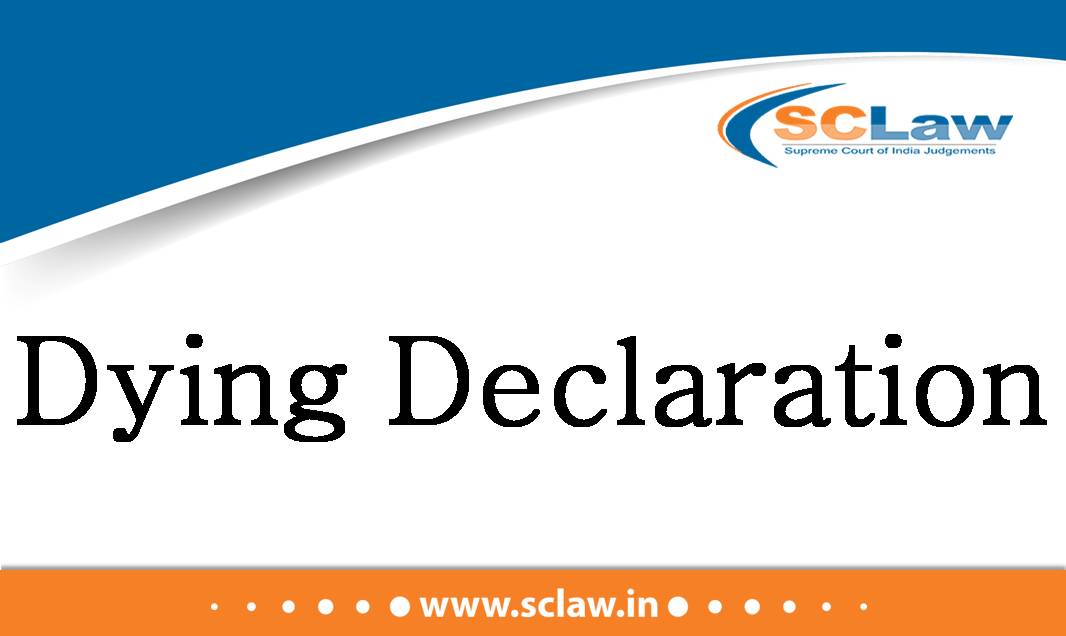Constitution of India, 1950 – Article 12 – Electricity Act, 2003 – Sections 61, 62, 84 and 86(1)(b) – Andhra Pradesh Electricity Reform Act, 1998 – Section 21 – Withdrawal of petition for grant of approval of Power Purchase Agreement (PPA) – – Appellants (DISCOMS) could not be permitted to change the decision at their whims and fancies and, particularly, when it is adversarial to the public interest and public good – APTEL has rightly held that the appellants-(DISCOMS) could not have been permitted to withdraw petition.
SUPREME COURT OF INDIA DIVISION BENCH SOUTHERN POWER DISTRIBUTION POWER COMPANY LIMITED OF ANDHRA PRADESH (APSPDCL) AND ANOTHER — Appellant Vs. M/S HINDUJA NATIONAL POWER CORPORATION LIMITED AND ANOTHER —…
Arbitration and Conciliation Act, 1996 – Section 11 – Appointment of member of the Bar as the sole Arbitrator – Appeal against – – While dealing with petition under Section 11, the Court by default would refer the matter when contentions relating to non-arbitrability are plainly arguable – In such case, the issue of non-arbitrability is left open to be decided by the Arbitral Tribunal – No case for interference is made out – Appeal dismissed.
SUPREME COURT OF INDIA DIVISION BENCH MOHAMMED MASROOR SHAIKH — Appellant Vs. BHARAT BHUSHAN GUPTA AND OTHERS — Respondent ( Before : Indira Banerjee and Abhay S. Oka, JJ. )…
Constitution of India, 1950 – Article 142 – Bearing in mind these exceptional facts and circumstances, by means of the saving clause in the Repealing Act, 2018, the Manipur Legislature could not have infused life into a legislation, which was recognised by the Legislature itself as unconstitutional and thereby, a nullity, prompting its repeal.
SUPREME COURT OF INDIA FULL BENCH THE STATE OF MANIPUR AND OTHERS — Appellant Vs. SURJAKUMAR OKRAM AND OTHERS — Respondent ( Before : L. Nageswara Rao, B.R. Gavai and…
Penal Code, 1860 (IPC) – Section 302/24 – Murder – Dying declaration – If the Court is satisfied that the dying declaration is true and voluntary it can base its conviction on it, without corroboration.
SUPREME COURT OF INDIA DIVISION BENCH STATE OF U.P. — Appellant Vs. VEERPAL AND ANOTHER — Respondent ( Before : M.R. Shah and B.V. Nagarathna, JJ. ) Criminal Appeal No.…
Civil Procedure Code, 1908 (CPC) – Order 39 Rule 2A – Contempt of a civil nature- The allegation of wilful disobedience being in the nature of criminal liability, the same has to be proved to the satisfaction of the court that the disobedience was not mere “disobedience” but “wilful” and “conscious” – Implication of exercise of contempt jurisdiction, held that the power must be exercised with caution rather than on mere probabilities
SUPREME COURT OF INDIA FULL BENCH FUTURE COUPONS PRIVATE LIMITED AND OTHERS — Appellant Vs. AMAZON.COM NV INVESTMENT HOLDINGS LLC AND OTHERS — Respondent ( Before : N.V. Ramana, CJI,…
Fixation of pension – his emoluments for the purpose of ascertaining the average would be taken, at what they would have been, had he not been absent from duty or suspended provided that the benefit of pay in any officiating post would be admissible only if it is certified that he would have continued to hold that officiating post but for leave or suspension
SUPREME COURT OF INDIA DIVISION BENCH STATE OF KERALA AND ANOTHER — Appellant Vs. ANIE LUKOSE — Respondent ( Before : Indira Banerjee and J.K. Maheshwari, JJ. ) Civil Appeal…
HELD The Respondent had the option not to lease out its property to the Appellant. The situation of an owner of property, executing a lease agreement in respect of his property cannot be equated with a contract of employment executed by and between an employee and a mighty employer, where the employee has little option but to accept the terms and conditions offered by the employer.
INDIAN OIL CORPORATION LIMITED THROUGH ITS SENIOR MANAGER — Appellant Vs. M/S SHREE GANESH PETROLEUM RAJGURUNAGAR THROUGH ITS PROPRIETOR MR. LAXMAN DAGDU THITE — Respondent ( Before : Indira Banerjee…
Acquittal – Use of the gun itself is not established by the FSL report – Ingredients of Section 307/34 IPC and Section 27 of the Arms Act have not been proved by the prosecution beyond reasonable doubt – Trial Court and High Court committed error in convicting the appellant for the charge under Section 307/34 IPC read with Section 27 Arms Act – Conviction and sentence set aside.
SUPREME COURT OF INDIA DIVISION BENCH VASUDEV — Appellant Vs. STATE OF M.P. — Respondent ( Before : Indira Banerjee and J.K. Maheshwari, JJ. ) Criminal Appeal No. 388 of…
Criminal Procedure Code, 1973 (CrPC) – Sections 397 and 401 read with Section 482 – Penal Code, 1860 (IPC) – Section 302 – Army Act, 1950 – Sections 69 and 125 – Murder- Consequence of the decision of the High Court is to foist an obligation on the Army Authorities to hold a court-martial despite a clear and unequivocal submission to the jurisdiction of the Court of Sessions – Accused shall be transferred from military custody to civil custody to face trial – Appeal allowed.
SUPREME COURT OF INDIA DIVISION BENCH THE STATE OF SIKKIM — Appellant Vs. JASBIR SINGH AND ANOTHER — Respondent ( Before : Dr. Dhananjaya Y. Chandrachud and Surya Kant, JJ.…
Hindu Succession Act, 1956 – Section 14(1) – Property of a female Hindu to be her absolute property – Objective of Section 14(1) – There cannot be a fetter in a owner of a property to give a limited estate if he so chooses to do including to his wife but of course if the limited estate is to the wife for her maintenance that would mature in an absolute estate under Section 14(1) of the said Act.
SUPREME COURT OF INDIA DIVISION BENCH JOGI RAM — Appellant Vs. SURESH KUMAR AND OTHERS — Respondent ( Before : Sanjay Kishan Kaul and M.M. Sundresh, JJ. ) Civil Appeal…














